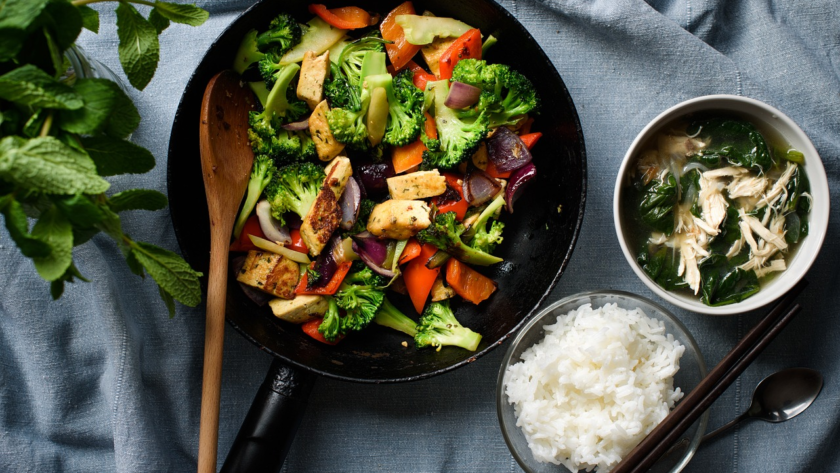Have you ever wondered how much tofu is safe to eat? As a plant-based protein source, tofu has gained popularity among health-conscious individuals and those following a vegetarian or vegan diet. However, the debate over its safety and recommended daily intake remains ongoing.
In this article, we will explore the nutritional value of tofu and examine both sides of the debate regarding its consumption. We will also discuss factors to consider when incorporating tofu into your diet and alternative protein sources for those who may not be comfortable consuming it regularly.
So let’s dive in and uncover the truth about how much tofu is safe to eat!
Key Takeaways
- Recommended daily intake of tofu varies based on age, gender, and activity level.
- Individuals with soy or tofu allergies should consult with a healthcare provider before adding tofu to their diet.
- Pregnant or breastfeeding women may need to limit their intake of tofu.
- Moderation is key when consuming tofu, and it is important to consume a variety of protein sources for a healthy lifestyle.
The Nutritional Value of Tofu
You’ll be happy to know that tofu is a nutritious addition to your diet, packed with protein, iron, and calcium. In fact, tofu is one of the best sources of plant-based protein available.
A 3.5-ounce serving of tofu contains around 8 grams of protein, making it an excellent choice for vegetarians and vegans who may struggle to meet their daily protein requirements. Not only does tofu boast a high protein content, but it also offers various health benefits.
Research suggests that consuming soy products like tofu may help reduce the risk of heart disease by lowering levels of LDL (bad) cholesterol in the blood. Additionally, some studies have linked soy consumption with a lower risk of breast cancer and osteoporosis due to its high calcium content.
Overall, incorporating tofu into your diet can provide numerous nutritional benefits without sacrificing taste or variety in your meals.
The Debate Over Tofu Consumption
The ongoing discourse surrounding the consumption of soy-based products has been a topic of much contention in recent years, including tofu, which is often touted as a healthy protein source for vegetarians and vegans. However, some experts argue that consuming too much tofu can have negative health effects.
Here are some points to consider in the debate over tofu consumption:
- Soy contains phytoestrogens, which can mimic estrogen in the body.
- Some studies suggest that excessive soy intake may increase the risk of breast cancer and thyroid problems.
- On the other hand, many studies show that moderate soy intake can have health benefits such as reducing cholesterol levels and lowering blood pressure.
- Additionally, tofu production has an environmental impact due to its high water usage and deforestation practices for soybean farming.
While there are valid concerns about consuming too much tofu, it’s important to remember that moderation is key. Tofu can be a healthy addition to a balanced diet when consumed in reasonable amounts. It’s also worth considering alternative protein sources such as legumes or quinoa for those who wish to limit their soy intake or reduce their environmental impact.
Recommended Daily Intake
Make sure to incorporate a variety of protein sources in your diet, such as beans and quinoa, in order to meet the recommended daily intake for a healthy lifestyle. While tofu can be a great source of protein, it’s important to consume it in moderation due to health concerns.
The recommended daily intake of tofu varies depending on factors such as age, gender, and activity level. However, in general, consuming 2-3 servings (approximately 150 grams per serving) per week is considered safe for most individuals.
It’s important to note that excessive consumption of tofu may lead to adverse health effects due to its high levels of phytoestrogens. As with any food, it’s crucial to practice moderation and balance in your diet for optimal health benefits.
Factors to Consider
When incorporating tofu into your diet, it’s important to consider various factors that can affect how much is safe to consume. Individuals with a history of soy or tofu allergies should be cautious and consult with their healthcare provider before adding tofu to their diet.
Different processing methods can impact the nutritional content of tofu, so it’s essential to choose products that are minimally processed and made from organic, non-GMO soybeans. Age and gender also play a role in determining safe levels of tofu consumption.
For instance, women who are pregnant or breastfeeding may need to limit their intake due to the presence of phytoestrogens in soy products. Athletes or individuals with high levels of physical activity may require higher protein intake and could benefit from including more tofu in their diet.
Ultimately, it’s crucial to listen to your body and monitor any adverse reactions when incorporating new foods into your diet.
How to Incorporate Tofu into Your Diet
Incorporating tofu into your diet can be easy and delicious with these simple tips. First, consider trying out different tofu preparation techniques such as baking, pan-frying, or grilling to add variety to your meals.
This versatile ingredient can be used in a variety of dishes, from stir-fries to salads. Secondly, try experimenting with different tofu recipes to find ones that suit your taste preferences. Some popular options include tofu scrambles for breakfast, marinated and grilled tofu skewers for lunch or dinner, and creamy vegan desserts made with silken tofu.
Don’t be afraid to get creative and try new things – you might just discover a new favorite dish! With these tips in mind, incorporating more tofu into your diet can be a tasty way to enjoy the health benefits of this nutrient-rich food.
Alternative Protein Sources
Now that we know how to incorporate tofu into our diet, it’s important to consider alternative protein sources. While tofu is a great plant-based protein option, there are other options available that can provide the necessary nutrients without relying solely on soy products.
One alternative is legumes, which include beans, lentils, and chickpeas. These foods are not only high in protein but also contain fiber and various vitamins and minerals.
Additionally, choosing plant-based proteins over animal-based proteins can have a positive environmental impact by reducing greenhouse gas emissions and land use associated with meat production. So next time you’re at the grocery store or planning meals for the week, try incorporating more legumes into your diet as an alternative source of protein.
Frequently Asked Questions
Can tofu be harmful to people with certain health conditions?
Tofu may interact with certain medications and can be harmful for those with kidney disease. However, tofu is generally considered safe and a healthy protein source for most people. Consult a healthcare professional if concerned about specific health conditions.
Is it safe to eat raw tofu?
Let’s cook tofu to avoid potential risks. Raw tofu can contain harmful bacteria and anti-nutrients that may decrease nutrient absorption. There are many delicious cooking methods and tofu recipes to try!
How does the nutritional value of tofu compare to other plant-based proteins?
When considering protein comparison among plant-based options, tofu stands out as a versatile and nutrient-dense choice. Cooking methods can impact its nutritional value, but it generally offers high levels of essential amino acids and minerals.
Does the way tofu is processed affect its safety or nutritional value?
Tofu processing techniques and safety regulations play an important role in determining its nutritional value and safety. These factors can affect the texture, flavor, and nutrient content of tofu, making it crucial to choose products that are carefully manufactured and regulated.
Are there any potential environmental concerns associated with tofu production and consumption?
When considering tofu production and consumption, there are valid environmental impact and ethical concerns to address. The soybean industry is linked to deforestation, habitat destruction, and pesticide use. It’s important to consider the origins of our food choices.
Conclusion
In conclusion, the debate over how much tofu is safe to eat is ongoing, but one thing is clear: tofu can be a nutritious addition to any diet. It’s low in calories and high in protein, making it an ideal choice for vegetarians and vegans looking to meet their daily protein needs.
However, as with any food, moderation is key. Too much of anything can be harmful, and consuming excessive amounts of soy products may have negative effects on hormone levels. That being said, incorporating moderate amounts of tofu into your diet can provide numerous health benefits without posing any significant risks.
To illustrate this point further, think of tofu as a seasoning rather than the main course. Just like salt or pepper adds flavor to a dish without overpowering it, tofu can be used as an ingredient in recipes to enhance their nutritional value without dominating the flavor profile. By using this metaphorical approach, we can better understand how to incorporate tofu into our diets in a healthy and balanced way.
At the end of the day, whether you’re a seasoned vegan or just starting out on your plant-based journey, adding some tofu into your meals can be both delicious and beneficial for your health. As with all foods though, enjoy it in moderation!




